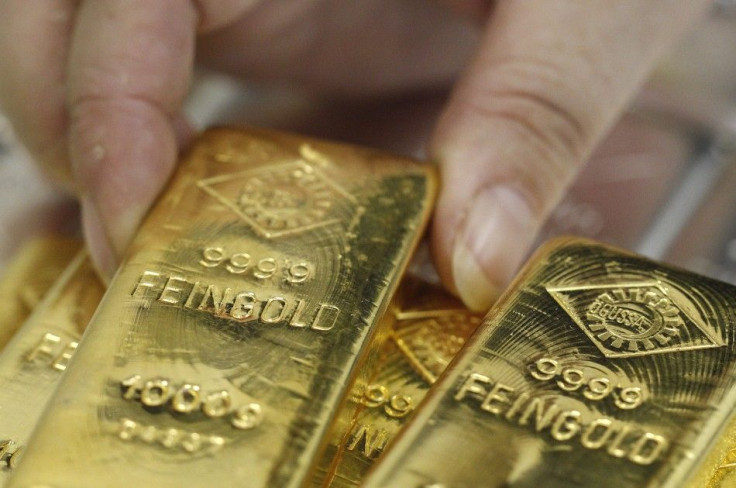Gold to Remain Strong Because of Few Safe-Haven Options - Analysts

Gold will stay strong due to a lack of alternative havens for investors operating in a slowing global economy, top performing commodity fund managers told Reuters after taking a defensive approach and going into cash during September's gold sell off.
We consider the current weakness in gold as temporary and also the slump in commodity prices should come to an end soon, said Kurt Hug, an investment adviser for the Antares Precious Metals Fund.
The fund came third in the Lipper Global commodity sector rankings in the third quarter of 2011 by keeping a high percentage of strategic liquidity in Swiss francs in anticipation of a severe, but short-lived commodity shock.
Fund research and analysis organization Lipper, a Thomson Reuters company, covers more than 108,000 funds. The commodity segment covers funds investing in both commodities futures and natural resources-related equities.
Reuters approached the best performers to ask for details of their winning strategies.
Also staying defensive was Paula Bujia, manager of the $330 million Schroders Gold and Precious Metals Fund, which came fourth. Steering clear of precious metals other than gold, and investing in mid-cap gold miners rather than seniors and juniors, helped her outperform, she said.
The gold price has risen by nearly 17 percent so far this year, having hit a record $1,920.20 an ounce in early September before correcting sharply downwards. It was around $1,655 an ounce on Friday.
Bujia said gold's correction from its peak was still only half of its declines in 2008 and she would wait for more selling of gold, particularly in exchange traded funds (ETF), before she felt able to resume aggressive buying of other precious metals and of mining equities.
In this environment, it's very difficult to believe that other precious metals could do well, she said. Until we see more capitulation in gold and more ETF outflows it is not the right time to turn aggressive.
Bujia is sticking with her gold tilt, saying the recent correction has been meaningful, but gold is not yet at a capitulation point. She believes gold may trade sideways for another couple of months, or come off another 10 percent.
Precious metals funds dominated the upper end of the Lipper league table of over 130 funds in the third quarter.
The LGT Dynamic Gold Fund came first, returning 9.36 percent over a quarter which saw the commodity index S&P GSCI fall 11.69 percent.
Peter Sigg, head of investment management for commodities at LGT Capital Management, said the $73 million fund had been invested between 96 percent and 115 percent over the quarter.
We have been slightly leveraged during the move to (gold at) $1,900 (an ounce) and we were slightly invested in cash during the sell-off in September, he said.
TESTING QUARTER
Reuters' analysis of the Lipper data showed that the third quarter was testing for all commodity managers, with the average actively-managed fund in the Lipper Global commodity sector down 8.34 percent.
S&P said equity market weakness and U.S. dollar strength had culminated in the worst quarter for the S&P GSCI since the fourth quarter of 2008.
Energy prices came under pressure due to fears of slowing demand and even precious metals did not escape, with profit-taking overwhelming the market in September. The S&P Precious Metals index ended September down more than 14 percent.
Our conclusion of the last month is that gold is not immune in a very negative global commodity and equity market environment, which was similar to the autumn 2008 experience, said LGT's Sigg.
But, like Bujia and Hug, he remains relatively bullish on gold, saying that whilst the recent sell off had washed out the CFTC net long positions held by professional investors, individual investors had only marginally reduced their physically-backed gold ETF holdings.
Bujia also noted that an equity exposure of just 20-25 percent may have protected her from stock market losses, helping her outperform those with higher equity tilts.
There is still a big gap between the performance of gold futures and gold mining stocks, which she said is partly because the miners are unable to decouple from overall equity markets.
When you have a fear trade, gold can perform well but not the equities, she said.
She believes gold equities offer great value, with record earnings and cash levels and increasing dividends, but these fundamentals will not come good until the stock market calms down.
Bujia remains cautious, focusing on mid-caps such as Randgold Resources, Yamana Gold and Eldorado which she said have good production growth.
Among the more diversified funds, Neuberger Berman's $100 million Enhanced Commodities fund, managed by Gresham Investment Management, also acquitted itself well largely due to a fairly high exposure to precious metals.
Douglas Hepworth, director of research at Gresham, added that a tilt to crude oil over natural gas, and to meats over grains and softs, had helped.
Macroeconomic factors have been the drivers of the entire commodities asset class for several months, and nothing there looks particularly encouraging, he said.
The worst-placed funds were the BI Basic Long Commodity Fund, which invests in natural resource equities and futures and cannot go short, and the BBGI Commodities fund which invests in a mix of commodity ETFs and commodity equities.
© Copyright Thomson Reuters 2024. All rights reserved.






















